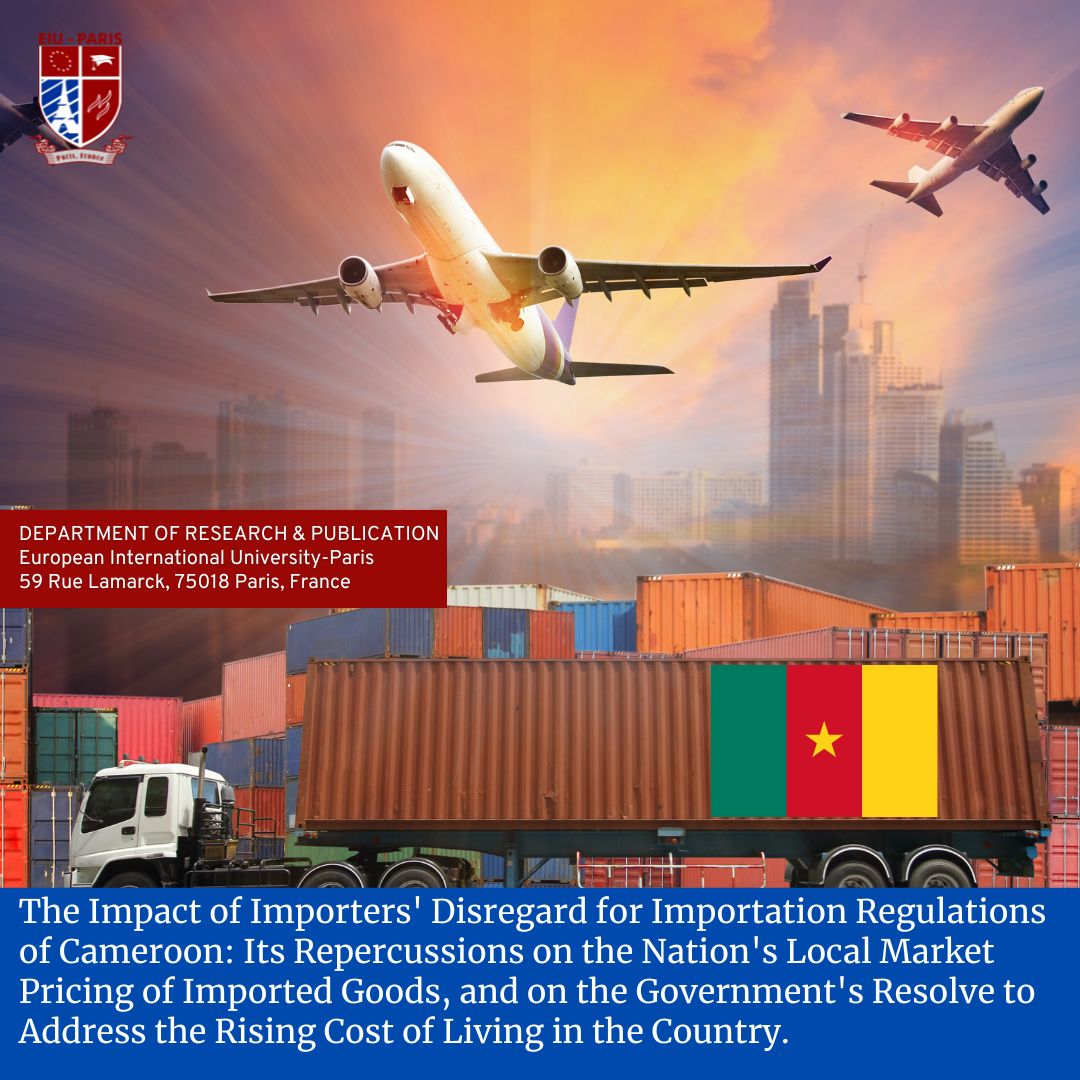- Version
- Download 3
- File Size 5.63 MB
- File Count 1
- Create Date January 5, 2025
- Last Updated January 6, 2025
The Impact of Importers' for Importation Regulations of Cameroon: Its Repercussions on the Nation's Local Market Pricing of Imported Goods, and on the Government's Resolve to Address the Rising Cost of Living in the Country.
Cameroon's economic crises in the 1980s and 1990s led the country to a shift from a production to an importing economy. In response, Cameroon's government enforced strict importation rules to safeguard the local industry, curbing dumping, and meeting financial donor organizations' demands. The disregard for the rules was and is still seriously penalized today.
The study examines the impact of breaking regulations on importation costs, and import commodity pricing, identifying knowledge of acceptable practices, mandatory documents, stakeholders, and their supposed roles as key sources of deviation from the norm by importers.
The research used the MIXED METHODS methodology to gather qualitative and quantitative data from stakeholders on the legal framework for importation and clearing of goods in Cameroon.
The study found that Over 70% of importers faced penalties/ fines, and demurrages for disregarding importation and clearing rules due to inexperience, lack of expertise, and knowledge of import and clearing procedures, mandatory documents, stakeholders, and roles, resulting in increased importation costs and consequently, price instability.
It revealed the legal framework for importation and clearing; from stakeholders, stages, requirements, mandatory documentation, penalties for violations, and categories of imports, highlighting problematic ones.
It also revealed that sole proprietorship businesses involved in importation were less organized and incurred more penalties. Retail businesses' tax regime upgrades by the government also increased prices.
The study further revealed that 74% of imports were funded from home through commercial bank cash transfers, 16% from abroad by Cameroonian residents there, and 10% through letters of credit. 16% of goods paid for from abroad by Cameroonian residents proved that they used their income earned abroad to import goods as a means to repatriate their funds home, despite ignorance of importation rules at home.

Forename: NJI Surname: FELIX NGWAMACHOM Student ID number: EIU0000308 Word Count: 4996 Words

